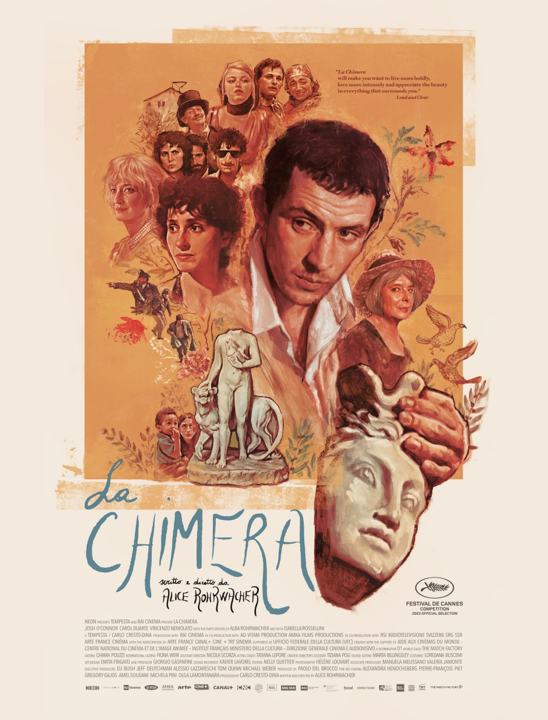




| Director | Maryam Moghaddam & Behtash Sanaeeha |
|---|---|
| Country | Iran |
| Year | 2024 |
My Favourite Cake is a tender and quietly subversive romantic tragicomedy directed by Maryam Moghaddam and Behtash Sanaeeha, making its world premiere in competition at the 74th Berlin International Film Festival (2024). Despite their absence—due to prior travel bans by Iranian authorities—the film earned the FIPRESCI Prize and the Ecumenical Jury Prize. This international co-production spans Iran, France, Sweden, and Germany, highlighting its global reach and cross-cultural resonance.
Seventy-year-old widow Mahin (Lily Farhadpour) lives a quiet, circumscribed life in suburban Tehran: she sleeps in until midday, tends her plants, and hosts lunch for her elderly friends. One afternoon, a reunion with these “old gals” ignites a spark—reminding her of the freedoms she once had and prompting her to challenge her resigned existence.
After witnessing a harsh morality police crackdown on a young woman in the park, Mahin intervenes—her courage reignited by memories of pre-revolution Iran. In her quest for connection, she visits a local pensioners’ café and meets Faramarz (Esmail Mehrabi), a solitary taxi driver tired of lonely meals. Taking an unusual initiative, Mahin invites him home—and what follows is a night of shared wine, dancing, conversation, and a beautiful moment of intimacy behind closed doors.
The film delicately balances the sweetness of late-life romance with the tension of living under a theocratic regime—resulting in a touching yet politically charged narrative.
Lily Farhadpour delivers a luminous performance as Mahin—wry, wistful, and defiantly vibrant. Her emotional complexity is conveyed through the quiet details: a clipped sigh in front of the mirror, hesitant flirtation, or tender resolve. Esmail Mehrabi as Faramarz complements her beautifully—sharing a warm and awkward chemistry that feels authentic and deeply moving.
The supporting ensemble—Mahin’s friends and nosy neighbours—enrich the story, grounding it in simple, lived reality. Their presence jars against the regime’s oppressive backdrop, showing that connection and defiance can co-exist.
At its core, My Favourite Cake is about late-life agency, joy, and rebellion. Mahin’s late-flowering desires and bold choices illuminate the vibrancy of ageing bodies and hearts. The title itself—an orange blossom and vanilla crème—becomes a metaphor for bittersweet love, memory, and the delicate artistry of life reawakened.
Humour and tenderness anchor the mood, even as the film underlines its resistance to both societal invisibility and political oppression. Moments such as rescuing a women from the morality police or sipping wine illicitly become revolutionary acts of selfhood.
Mohammad Haddadi’s cinematography frames Mahin alone at the centre of her world—often isolated in her apartment, garden, or public spaces—underscoring her solitude and agency. The camera’s quiet intimacy allows gestures, glances, and silences to speak volumes.
The central date scenario unfolds with a sense of gentle immediacy, echoing Richard Linklater’s Before Sunrise in its authenticity and spontaneous chemistry. The turning point shifts from joy to a stark reminder of their vulnerable circumstances.
The film speaks not only to universal themes of ageism and loneliness, but also to pressing issues of women’s rights in Iran. By showing Mahin without her hijab in private and engaging in banned activities like drinking and dancing, the directors directly challenge authoritarian norms. The regime’s punitive response—including travel bans and raids—underlines the film’s political potency.
For audiences in the UK, the film offers a deeply human lens on resistance and desire, reminding us how personal liberation can ripple into political defiance.
My Favourite Cake is an ode to the possibility of love, agency, and rebellion when life seems settled. In the face of ageing, isolation, and systemic oppression, Mahin dares to reclaim her story—and in doing so, offers us a vision of late-life courage and connection we rarely see on screen. Quietly political, deeply humane, and tenderly daring, it is a film to savour and contemplate long after its final frame.
In an effort to reduce our paper usage, we stopped offering printed copies of our popular Film Notes at our screenings.
Instead, we are encouraging our members to read the Film Notes online. For those who wish to do so, it is still possible to print these pages prior to the film.
Alternatively, if you want to read the notes just before or just after the film, and also minimise your paper consumption, then you can scan the QR code to your phone and then download the webpage.
